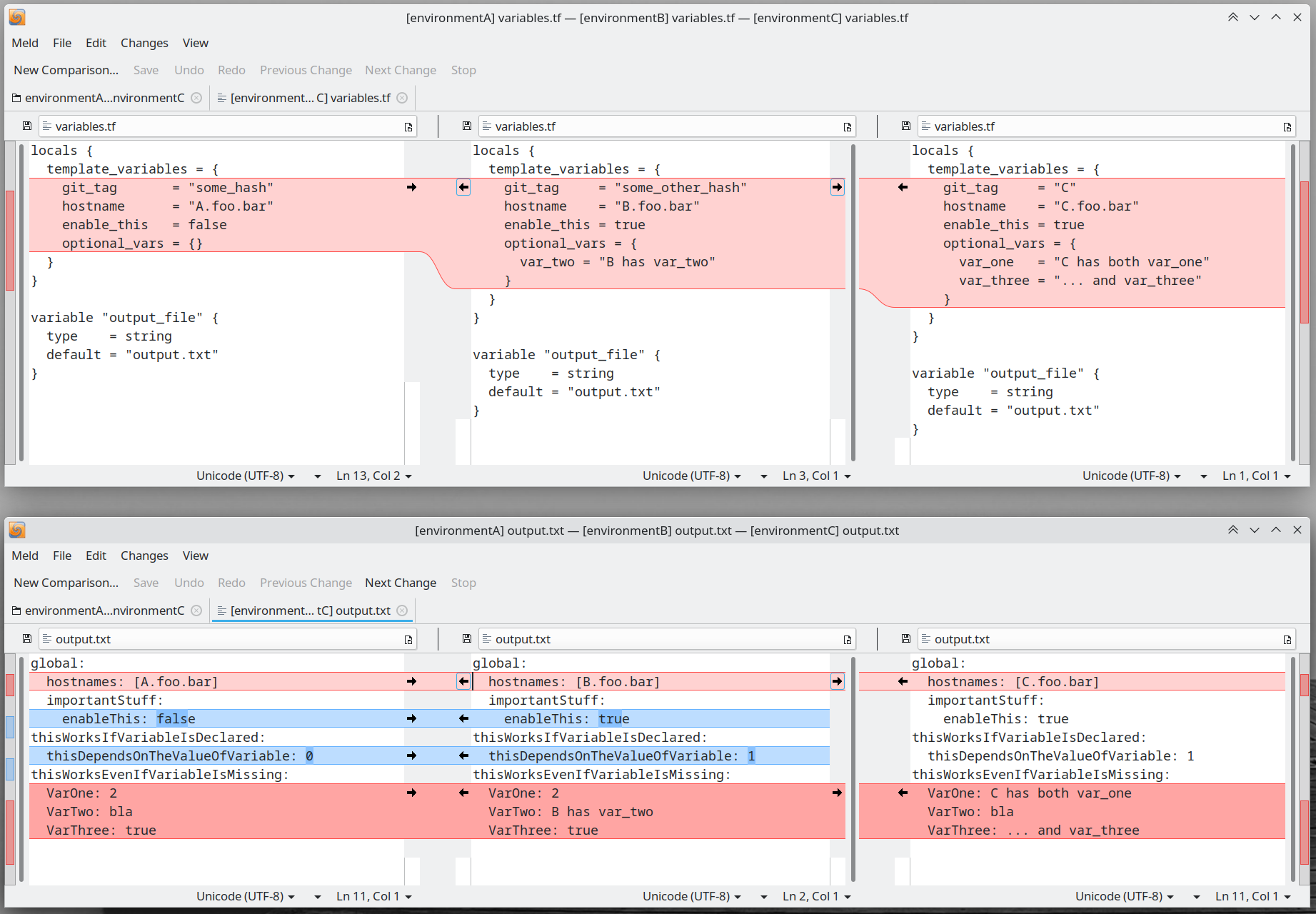This is a small demo, showing how you can make use of "optional" variables in templates, replacing them with default values.
A picture is worth a thousand words:
For even more details see
- this Hashicorp discussion
- my blog post
- you have to manage multiple environments
- all the environments use the same configuration file, that is a template
- the template contains many variables
- some environments tend to be snowflakes, as they have non-default values
- should you want to edit the template to add these variables, with non-default values, for these snowflake environments, those variables will have to be added to each of the standard (non-snowflake) environments, as well; otherwise
terraform planandterraform applywill fail on all the environments - basically, you don't want to replicate a snowflake variable to a standard / non-snowflake environment
$ tree
.
├── common-template-file.tftpl
├── environmentA
│ ├── render-template.tf
│ └── variables.tf
├── environmentB
│ ├── render-template.tf
│ └── variables.tf
├── environmentC
│ ├── render-template.tf
│ └── variables.tf
├── environmentD
│ ├── render-template.tf
│ └── variables.tf
├── environmentE
│ ├── render-template.tf
│ └── variables.tf
└── README.mdSo
- there's a common template for all environments
- each environment has its own directory
- each environment has a bunch of .tf files holding the Terraform code
- in
variables.tfeach environment has its own custom set of variables
The are two important sections in the template:
thisDependsOnTheValueOfVariable: %{ if enable_this == false }0%{ else }1%{ endif }enable_thisis a variable that must exist in allvariables.tffiles- environmentE doesn't have it and you'll see Terraform failing because of that
- depending on its value, another variable is set.
thisWorksEvenIfVariableIsMissing:
VarOne: ${try(optional_vars.var_one, 2)}
VarTwo: ${try(optional_vars.var_two, "bla")}
VarThree: ${try(optional_vars.var_three, true)}optional_varsis a section (that can have any other name) that must exist in allvariables.tffiles- environmentD doesn't have it and you'll see Terraform failing because of that
- but any variable nested under
optional_varsis optional and can be missing
Go to each environment and run terraform plan or even terraform apply, which will generate a file called output.txt for that environment, if the variables are not missing
Example:
cd environmentC/
terraform init; terraform apply -auto-approve